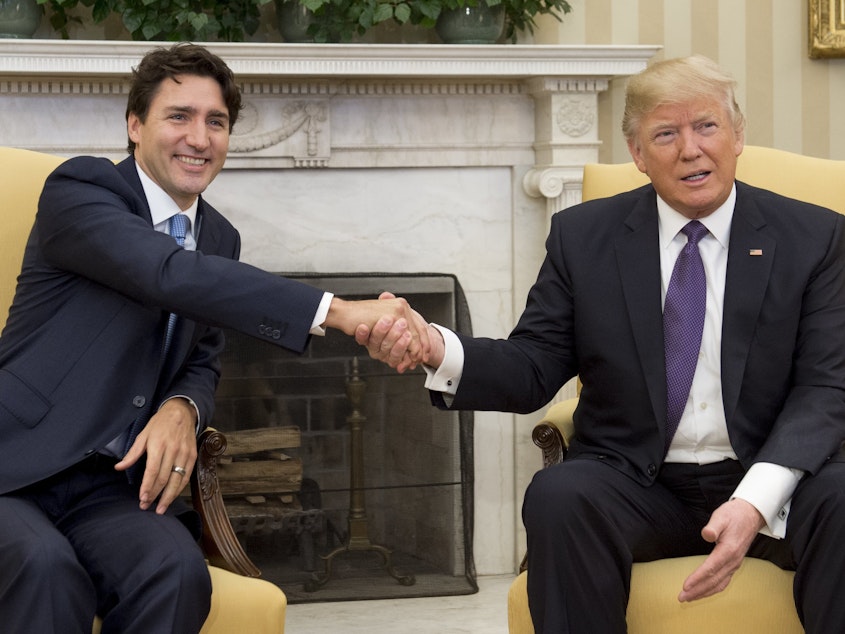U.S. And Canada Reach Deal To Replace NAFTA

Updated at 10 a.m. ET
The U.S. and Canada reached a deal to replace the North American Free Trade Agreement, signed a quarter-century ago, with a new pact that the Trump administration says is easier to enforce.
Ahead of the midnight deadline set by the White House, President Trump approved changes that essentially revamp the 1993 NAFTA deal, bringing Canada on board after Mexico had already agreed in August.
In addition, the two countries agreed to shield Canada from any future automobile tariffs imposed by the U.S.
The agreement, called the U.S. Mexico Canada Agreement, or USMCA, gives U.S. dairy farmers greater access to the Canadian market. It also preserves a dispute resolution system that Canada likes but which the Trump administration had hoped to phase out.
Trump is expected to sign the deal, along with Canadian Prime Minister Justin Trudeau and Mexican President Enrique Pena Nieto, before Pena Nieto leaves office in early December. It would then be submitted to the U.S. Congress for approval early next year.
A joint statement from U.S. Trade Representative Robert Lighthizer and Canadian Foreign Minster Chrystia Freeland says, "USMCA will give our workers, farmers, ranchers, and businesses a high-standard trade agreement that will result in freer markets, fairer trade and robust economic growth in our region."
U.S. business groups welcomed the agreement, which preserves a continent-wide free-trade zone. Tom Donohue, president of the U.S. Chamber of Commerce, had warned that a deal that excluded Canada would be a non-starter.
Labor unions reserved judgement, saying they need more time to assess the deal's worker protections.
Mexico had earlier agreed with the U.S. to include stricter rules of origin on automobiles, so cars will have to include more North American content in order to be sold duty-free in the U.S. The rules also require that a portion of cars be made in factories paying at least $16 an hour — a provision that could shift some auto manufacturing from Mexico to the United States.
The agreement also updates NAFTA with new provisions governing digital trade and intellectual property.
It does not affect tariffs on imported steel and aluminum which the U.S. imposed this year, nor the retaliatory tariffs that Canada and Mexico imposed in response. [Copyright 2018 NPR]


